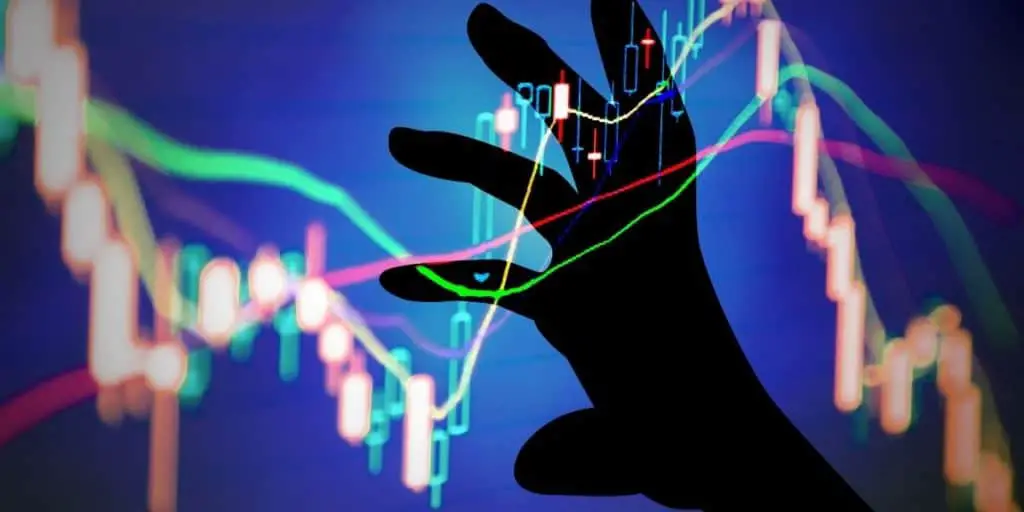Trading forex without brokers isn’t possible for most retail traders. They act as intermediaries that connect traders to other market participants and have access to their clients’ information. Many traders wonder if forex brokers manipulate prices.
Some forex brokers can manipulate prices. Dealing-desk brokers who act as market makers may decide that they don’t charge traders enough commissions and give traders different quotes. Plus, they can create false spikes to lure traders into investing in particular currency pairs.
In this article, we’ll talk about how brokers manipulate prices and the market. We’ll also elaborate on different types of brokers and specify which one manipulates prices.
IMPORTANT SIDENOTE: I surveyed 1500+ traders to understand how social trading impacted their trading outcomes. The results shocked my belief system! Read my latest article: ‘Exploring Social Trading: Community, Profit, and Collaboration’ for my in-depth findings through the data collected from this survey!
Table of Contents
How Forex Brokers Manipulate Prices?
Since there’s no central exchange in forex, brokers can create and quote prices regardless of other players. That’s why retail traders can find different prices on different platforms. Lack of strict regulations has also created opportunities for shady brokers to engage in fraudulent activities.

Brokers are the only links between retail traders and liquidity providers. A significant part of their income is from the spreads, the difference between the ask/bid prices. Thus, if they decide that they don’t earn enough money from spreads, they try to raise their cuts by manipulating prices.
Brokers quote prices based on what the liquidity provider determines. Although they have to set competitive prices, they can set any price they want.
They receive quotes from the banks they’re listed with and choose the best price that gives them the best spread.
One telling sign that the broker may be manipulating prices is that they offer fixed spreads. Most brokers offer flexible spreads based on each pair. So, those offering fixed spreads have to give their own prices to stay on the profit path.
This form of price manipulation is difficult to prove. If you ask the broker why the price is different from other brokers, they’ll justify it by telling you that they work with different liquidity providers. Plus, brokers use sophisticated software to compare all the banks’ prices (liquidity providers) and generate the best price. So, they may attribute these price changes to the software.
Shady brokers can also manipulate prices or the market in the following ways:
5 Ways Forex Brokers Manipulate Prices
Creating False Spikes
Forex is a highly volatile market, with lots of price fluctuations even during one day. So, traders are used to seeing high and low spikes, and many of them make money by trading these spikes.
Dishonest brokers take advantage of this feature by creating false spikes and luring traders into placing orders. Just after placing the order, you’ll see the price goes in the other direction, causing you to lose big.
Brokers can create false spikes in charts for individual accounts. So, the only way to prove fake spikes is by comparing your account with another trader’s account in the same brokerage. You could use the charts provided by a third-party forex vendor, too, but it’s a known fact that forex charts can be different, especially during high-volatility periods.
Slippage
During high-volatility periods, a pair’s expected price may be different from its executed price. This difference is called slippage and can normally happen to many traders.
If your broker isn’t trusted, they can manipulate prices and pin it down to slippage. So, you place your order at a specific price, but they make you pay a higher price by simply saying high volatility made the price go up.
Stop-Hunting
Another way in which fraudulent brokers tamper with prices is stop-hunting. Forex traders set stop-loss orders as a risk-management strategy to minimize their losses. To avoid losing money, they tell their brokers to stop their position when it reaches a specific price point.
It frequently happens in forex trading, and while many people believe there are no sinister intentions behind this strategy, illegal brokers may take advantage of it. They drive the prices to a place near the stop-loss order, making you go out of the trade. After that, they move back the prices to the reverse position.
Stop-loss hunting often happens at high-volatility times, such as major news announcements. The broker sends the prices a little higher or lower than the actual market prices, giving the stop-loss orders a nudge.
To avoid stop-hunting, you can use different demo accounts, especially at high-volatility or big news announcement times. This way, you can compare exchange rates. Plus, you can check other reliable sources before placing an order with your broker.
Spoofing
Spoofing is an unethical and illegal form of market manipulation by brokers, market makers, or other major market participants. It involves creating false interest in a currency pair by placing bogus orders on them without the real intention of trading that currency.
This way, the pair’s price will experience artificial inflation due to increased demand and attract many traders. When these traders place orders, the broker cancels them before execution.
Although spoofing is illegal and subject to punishment by law, it’s difficult to prove. That’s because brokers or traders can cancel their orders anytime and for any reason. They may cancel the orders just because they’ve changed their minds.
Front Running
Front running is another illegal market manipulation strategy in which brokers exploit what they know about their clients’ actions. When a client plans to place an order, the broker sets their own order before that trader and takes advantage of the price changes.
For example, a trader places an order with the broker to sell USD for Euro at the exchange rate of 90 when the market is trading USD-Euro for 89.90. The broker will sell the pair, driving the price down. It trades the order before their client, who’s waiting to trade at a slightly higher price.
Do All Brokers Manipulate Prices?
Of course, not all brokers engage in price or market manipulation. However, after the rise of electronic and internet-based trading platforms, the chances of fraudulent activities increases. Even though forex isn’t as regulated as other markets, some regulations prevent forex brokers from swindling.
You need to do thorough background checks before choosing a brokerage to ensure they’re reliable and trustworthy.
Don’t use dealing-desk brokers who trade against their clients and may engage in all kinds of price manipulation to earn more profits. They don’t send your orders to the interbank market, and you’ll be trading with them.
ECN/STP brokers can’t work as market makers and route your orders to liquidity providers. They don’t manipulate prices and give you real ones offered by banks. However, not all ECN/STP brokers are genuine. Most of them are fake ECN/STP brokers who try to trade against you and manipulate prices.
If a broker has fixed or zero spreads, high leverage, or bonuses on your deposits, you should be alarmed as they may be market makers.
So, before investing with a broker, do your homework to find a true ECN/STP broker who doesn’t have conflicting interests with you and only earns money through spreads and commissions. Pay attention to their reputation, size, platform speed, and honesty. Look for excellent customer service, and don’t let them lure you by offering fancy software that promises to make you millions.

Author’s Recommendations: Top Trading and Investment Resources To Consider
Before concluding this article, I wanted to share few trading and investment resources that I have vetted, with the help of 50+ consistently profitable traders, for you. I am confident that you will greatly benefit in your trading journey by considering one or more of these resources.
- Roadmap to Becoming a Consistently Profitable Trader: I surveyed 5000+ traders (and interviewed 50+ profitable traders) to create the best possible step by step trading guide for you. Read my article: ‘7 Proven Steps To Profitable Trading’ to learn about my findings from surveying 5000+ traders, and to learn how these learnings can be leveraged to your advantage.
- Best Broker For Trading Success: I reviewed 15+ brokers and discussed my findings with 50+ consistently profitable traders. Post all that assessment, the best all round broker that our collective minds picked was M1 Finance. If you are looking to open a brokerage account, choose M1 Finance. You just cannot go wrong with it! Click Here To Sign Up for M1 Finance Today!
- Best Trading Courses You Can Take For Free (or at extremely low cost): I reviewed 30+ trading courses to recommend you the best resource, and found Trading Strategies in Emerging Markets Specialization on Coursera to beat every other course on the market. Plus, if you complete this course within 7 days, it will cost you nothing and will be absolutely free! Click Here To Sign Up Today! (If you don’t find this course valuable, you can cancel anytime within the 7 days trial period and pay nothing.)
- Best Passive Investment Platform For Exponential (Potentially) Returns: By enabling passive investments into a Bitcoin ETF, Acorns gives you the best opportunity to make exponential returns on your passive investments. Plus, Acorns is currently offering a $15 bonus for simply singing up to their platform – so that is one opportunity you don’t want to miss! (assuming you are interested in this platform). Click Here To Get $15 Bonus By Signing Up For Acorns Today! (It will take you less than 5 mins to sign up, and it is totally worth it.)
Conclusion
Not all forex brokers are scams who manipulate prices. Dealing-desk brokers don’t route their clients’ orders to the interbank market and may engage in any suspicious activities to earn more money.
They give clients different prices and create fake spikes in the charts to make them enter trades. Spoofing, front running, and slippage are other ways they manipulate prices or the market.
So, make sure to trade with genuine ECN brokers who connect you to the real market participants and don’t manipulate prices.
BEFORE YOU GO: Don’t forget to check out my latest article – ‘Exploring Social Trading: Community, Profit, and Collaboration’. I surveyed 1500+ traders to identify the impact social trading can have on your trading performance, and shared all my findings in this article. No matter where you are in your trading journey today, I am confident that you will find this article helpful!
Affiliate Disclosure: We participate in several affiliate programs and may be compensated if you make a purchase using our referral link, at no additional cost to you. You can, however, trust the integrity of our recommendation. Affiliate programs exist even for products that we are not recommending. We only choose to recommend you the products that we actually believe in.
